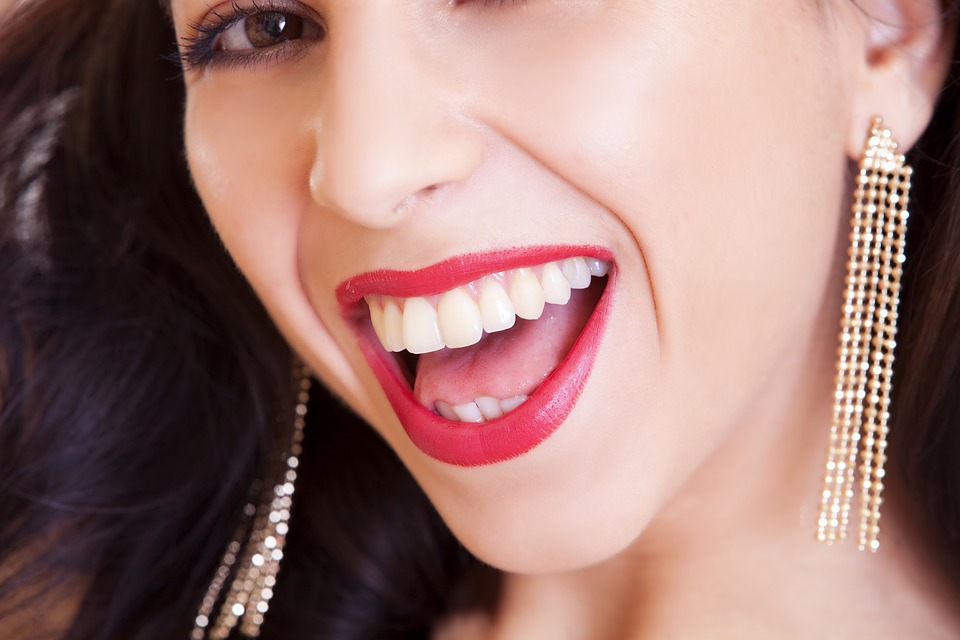
Body + Mind is reader-supported. We may earn an affiliate commission when you buy through some of the links on our site.
Best practices for oral health care have evolved over time just like anything else. Just like beauty standards, some of what people believe and practice makes you go, “Seriously?” while others inspire you in a Pinterest-DIY-hopeful kind of way. One of the most interesting facts about oral health? Everyone thinks they’re an expert on it!
Even today, researchers aren’t always decided on what’s bad for you and what’s not. Myth or merit, it’s left up to you to talk to your dentist and find what’s right for you — and what makes your dentist frown less.
See for yourself how oral health care has evolved as well as which oral care practices you may want to re-think. Laugh. Cringe, and get informed with the following 5 interesting facts about oral health.
Six billion bacteria invade your mouth. Compare that to the slightly more than seven billion people living on the planet! That’s a lot of oral bacteria. In a letter to the Royal Society of London in 1683, Antoni van Leeuwenhoek wrote about very small animals — bacterial plaque — moving quite extravagantly, and he believed these animals “exceed the number of men in a kingdom.” Indeed, sir. Indeed.
That kingdom represents its own biome, and when you eat a balanced diet, the good bacteria outweigh the bad.
The first bristled toothbrush was manufactured in 1498 in China, and badgers, horses and hogs gave their hairs to the cause of keeping human teeth clean. Some handles were made of bone. Today’s toothbrushes don’t use animal hair, of course, but this was once standard.
Dupont de Nemours invented the modern nylon-bristle toothbrush in 1938, and before bristles, the ancients used chew sticks. Frayed ends of the sticks helped brush against the teeth to free up food debris, and supposedly, some pieces of wood and bark held herbal oral health benefits. Go, ancients. Modern folks will stick with nylon, though.
Fancy folk go to their dentists for all kinds of little things, but a mountain-raised grandma might still chew on sticks and pull with oil to keep her mouth healthy. Oil pulling is simply keeping oils in the mouth or swishing with them for an extended period. Recent studies found oil pulling as effective as a chlorhexidine treatment for bad breath, bleeding gums, discoloration and bacterial growth. Oils commonly used for pulling include sunflower, sesame and coconut, and the tradition of oil pulling stems back to Ayurvedic texts, some 3,000 to 5,000 years ago.
But can you brush your teeth with coconut oil? Well, sort of! All it involves is a swish, rinse and spit cycle. Swish a tablespoon or so for about 15 minutes and spit it in the trash afterward. If you don’t toss an old toothbrush after you’re sick, you risk re-infecting yourself. With oil, you just swish and spit.
Do you leave your toothpaste lid on every time you brush? Don’t fret if the lid goes missing because it’s actually better to let your toothpaste air out than to encourage bacteria growth by keeping the lid on!
Every sip of soda lends 20 minutes of damage to your teeth, and if the bulk of your liquid diet is soda, your likelihood of having severe tooth decay increases. The sugar interacts with the bacteria in your mouth to form acid, in addition to what the ingredient label shows. You can offset a small degree of the damage by drinking through a straw, but a squeeze of lemon or lime in water is way better for you.
Sports drink enthusiasts aren’t off the hook, either. Among teens, 62 percent drink one sports drink daily. One study showed that teeth dipped in various brands of sports drinks revealed evidence of tooth decay, some for as short as a 15-minute dip. The brands varied in damage, but what’s done is done — damage to tooth enamel can’t be changed.
Finally, guess what? Newborns don’t have any oral bacteria when they start life, but parents can share theirs when blowing on hot food or giving smooches. Running a little water along the baby’s gum line with a finger helps establish good oral health care from a young age.
So, try skipping the soda and practice your own good oral health care habits by brushing away those “small animals” with extravagant, circular motions — and if you want to try oil pulling, that just might work, too. From animal bristle toothbrushes to keeping the lid off your toothpaste, I hope these interesting facts about oral health surprised you!
But the better surprise is the look on your dentist’s face when you show off your healthy teeth. Take some inspiration from the science-backed relics of ancient and modern practice.
Your email address will only be used to send you our newsletter, and at any time you may unsubscribe. For more information, see our Privacy Policy.